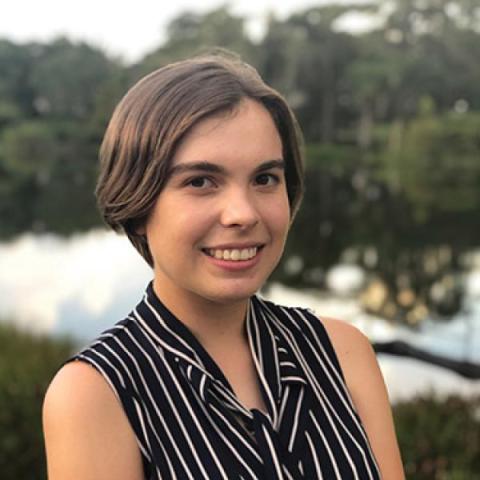Breaking Cycles of Conflict
Student Experience
Varvara Lazaridis, an international studies and political science double major, with a minor in history, writes about her remote internship this past summer at the Dispute Resolution Center of Montgomery County in Houston, where she completed mediation training, participated in mediations, carried out research on restorative justice, and facilitated peer mediation training for high school students.
From the day that I learned about the concept of wars, my interest in conflict resolution has only been growing. As a young child, I had experienced conflict resolution in my own life. When I would fight with my best friend in primary school, by the end of the day we would make up and be on good terms again because we would talk things through.
So, in my young mind I thought, why couldn’t governments also do that? Why couldn’t this be done on a bigger scale? As I grew older, and as my thought process developed, I began to think about wars and conflict on a more abstract, theoretical level, leading to my academic interest in conflict resolution.
After completing my 40-hour training at DRC-MC, I had the opportunity to mediate with experienced professionals. I really enjoyed the process of mediation and learning techniques designed to help others resolve conflict. I felt like a sponge, soaking up all the information I could get from this new environment.
The family mediations were the most complicated, yet also the most interesting. They were often emotionally charged, and it was intriguing to see how skilled mediators manage these emotions.
One of my favorite techniques for getting past tense discussions of parental rights is when the mediator asks for the name of the child and says, “That’s a beautiful name! How did you come up with it?” This makes both parents smile, brings their focus back to the child and invites them to feel the warm feeling from when the days were happier.
I learned, and then saw firsthand, that mediation is a more organic process of managing conflict than the limited methods that our legal system offers. Mediation caters
to the needs of each individual and has the potential to break cycles of conflict. It targets and resolves conflict at its root; it provides closure for the parties. It also allows them to design an agreement that best suits their needs and interests instead of having resolution imposed upon them by a judge who does not know them or their families.
In many of the mediations I observed or took part in, the parties were given space to improve their communication, and in the end, they were able to understand each other better.
Conflict can be constructive, and an environment that embraces and correctly manages conflict can benefit from more creative outcomes, growth of the team, and more. Conversely, if conflict is not managed well, it can become extremely detrimental and even result in violence in the workplace.
After learning mediation skills and techniques throughout my internship, I have come to believe that teaching conflict resolution skills to as many people as possible will drastically change the course of our collective future. This applies especially to every child and young adult who hopes to succeed as a leader.
When large groups of us are trained to approach and resolve conflict successfully, we are more capable as a collective to make the right decisions when conflicts arise. This will make us better communicators with one another and will lead to a better, more peaceful future.
The more mediators there are in this world, no matter the field they end up in, the better off we will all be.
Published on: 01/03/2022
